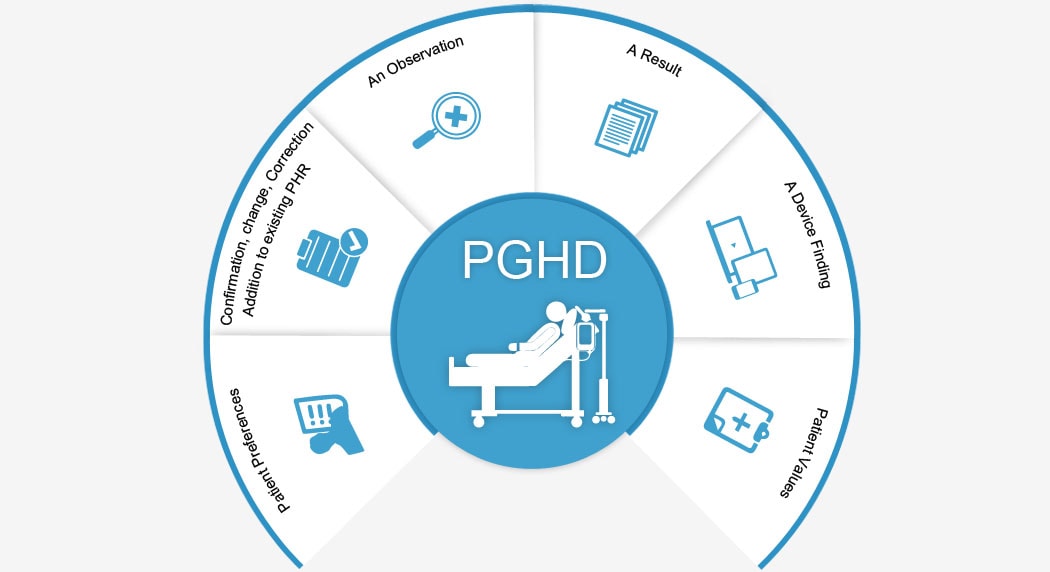PGHD(Patient Generated Health Data)
Discover Hidden Value in Data Your Patients Provide
-
It’s common knowledge: your company’s structured and unstructured data provides value that you’re are just beginning to extract. One source of this potential value is patient-generated healthcare data.
-
PGHD is data that’s created, recorded, gathered or inferred by or from patients, family, personal caregivers or designees. It includes treatment data, health history, lifestyle choices, disease symptoms and even health and treatment history.
-
PGHD is not generated in clinical settings or in encounters with healthcare providers. But it still provides potent information because:
- Patients, not physicians capture the data.
- Patients decide how and with whom they want to share it.
- Data provides continuous information, not just during hospital visits. This gives physicians a more accurate picture of how patients are doing between clinic visits.

What’s So Important About Patient-Generated Data?
Research shows that PGHD use reduces readmission rates, length of hospitalization stays, and healthcare costs.
The increasing use of self-monitoring devices by patients to improve their health is revolutionizing care. Patients can decide with whom to share their data. If they feel that it will be safe and can improve their care and reduce costs, they are usually willing it share it with their physicians. This provides healthcare professionals with data that was unavailable before. Hence, it gives them an opportunity to treat acute and chronic illnesses like never before.
Use Medigy in these applications of preventive and chronic care management:
- Wellness and preventive care. Wellness or preventive care is not a high-priority activity. There is very little standardization for wellness metrics. Given the weak demand for preventive care, developers spend little time to create wellness or preventive care apps. But, with the advent of value-based healthcare, health systems must provide chronically ill and healthy patients with preventive care.
Medigy contributes to preventive care by predicting early signs of disease, constantly monitoring patient health and sending physician alerts when it detects abnormal values.
- Academic research. When de-identified, PGHD can be used for academic research. It’s used to study the occurrence of illness in sample populations, for people with specific conditions. Medigy takes the data collected from multiple sources, harmonizes it, de-identifies it and makes it available for research.
- Healthcare risk management. By grouping patients into low-, rising- and high-risk populations, Medigy can analyze patient populations to provide physicians with data for patient education, guidance and treatment options.
- Identify gaps. Medigy can compare PGHD with current data trends captured at various points of care. This method can help determine gaps in care and identify additional patient data that needs to be captured during hospital visits, physician encounters and clinic visits.